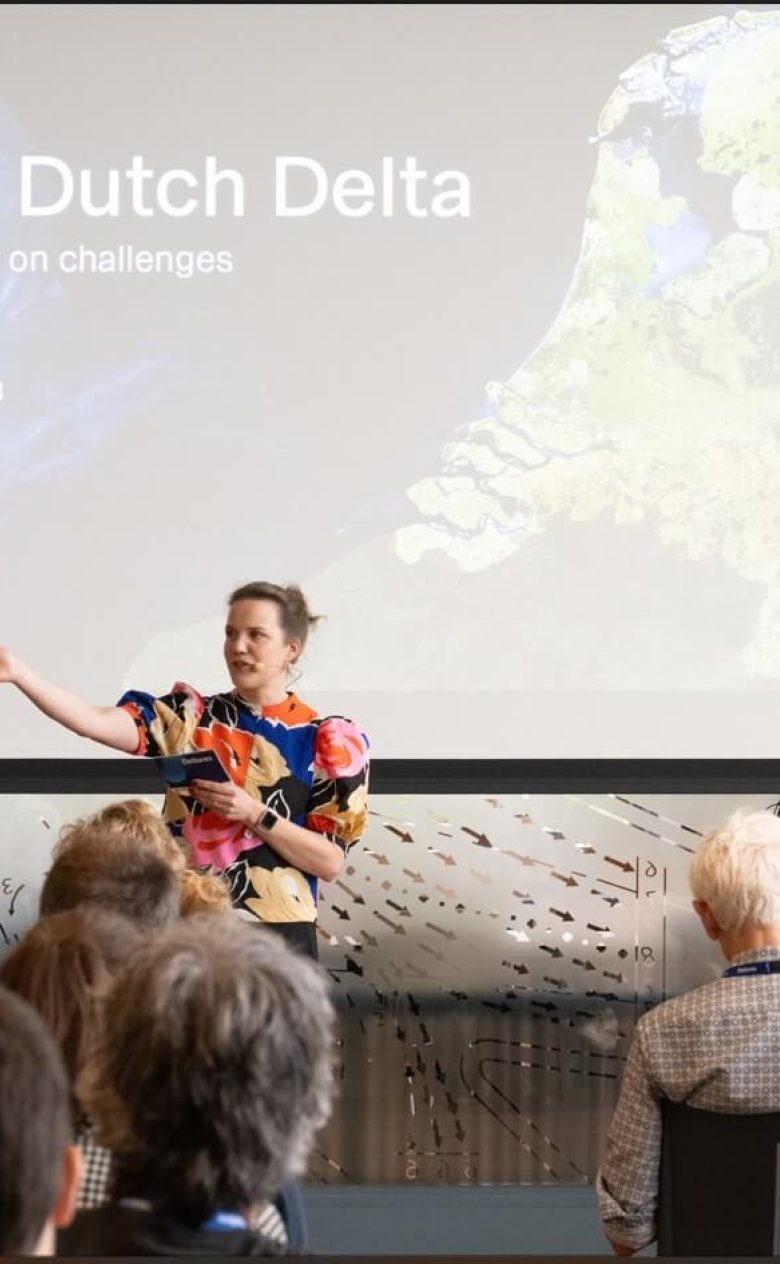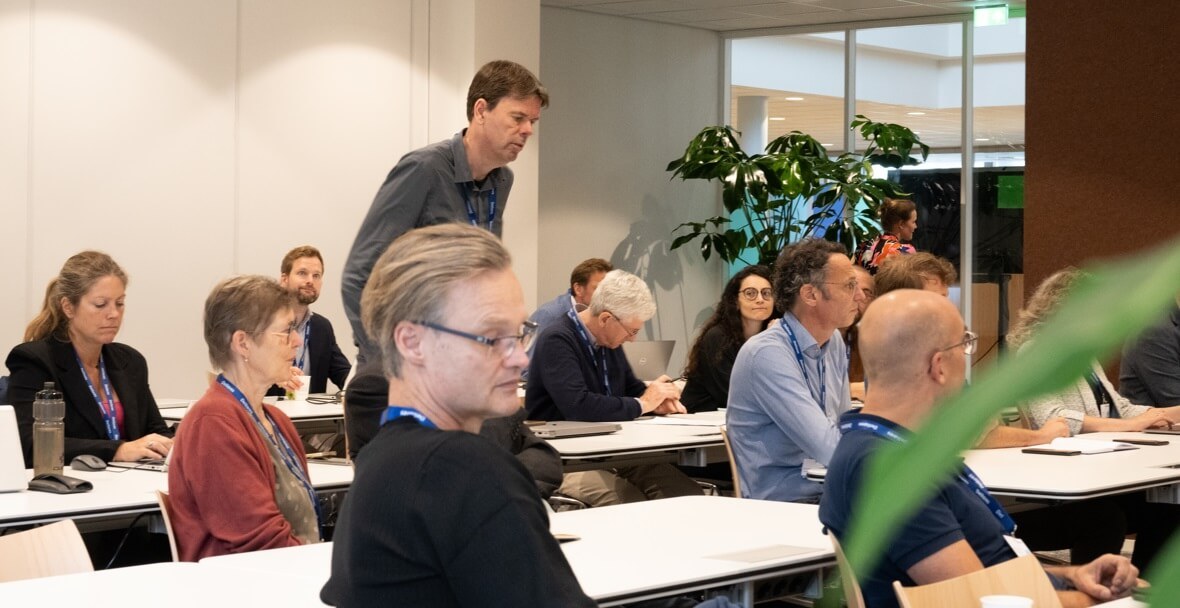Scientific experts share findings and forge bonds at Future Dutch Delta Symposium
“Synthesising deep perspectives is hard, what we need is genuine curiosity for each other’s angles.” At the Future Dutch Delta symposium on 28 September, Deltares director Annemieke Nijhof called upon the Dutch water management research community to increase collaboration to achieve a common goal: providing the knowledge required to plan a resilient Dutch delta in decades to come.

Experts from Dutch universities, research institutes and public organisations such as the royal Netherlands meteorological institute (KNMI) and the executive agency of the Ministry of Infrastructure and Water Management (Rijkswaterstaat) all gathered at Deltares headquarters in Delft.
The daylong programme offered thematic as well as regional focus, ranging from a historical account of the shaping of the Dutch landscape and soil systems by both climate change and human activity to expectations regarding freshwater availability in the near future.

Too little, too much
Marjolein Mens, drought expert at Deltares, explained that although recent droughts are considered to be extremes, such events may well become standard. Understanding how this trend relates to freshwater and drinking water availability in high- and low-lying regions and different soil types should be the main concern of any future research. Measures such as source protection and fewer groundwater extractions will be required at some stage, she expects.
Drought risk management is as much a matter of land use management as of water management. She also pointed out that the type of economic activities undertaken substantially determine the level of vulnerability to drought. And that the present-day water deficit might become much larger by 2050.
How to future-proof coastal barriers and other complex hydraulic structures? Bas Jonkman, professor of Hydraulic Engineering at TU Delft, explored the possible consequences of rising water levels. Substantial investments will be required and other interests than that of flood mitigation are at stake, if and when interventions are planned and made. He made it clear that this is not just a matter of assessing barrier performance and reliability. Environmental and social impact should also be taken into consideration. He believes a multi-disciplinary design and planning approach can help achieve the integral perspective needed to address this multi-faceted issue.
Everybody here holds a piece of the puzzle and we need to look far ahead. Will the ways in which we manage our water systems still work in 2050 or 2100? If not, what are the alternatives and in which direction should we head? Everybody present seemed eager to answer these questions as a collaborative.
Saskia van Vuren, advisor Strategy and Knowledge for the Delta Programme Commissioner
With nature
The point was made that climate resilience in general is also a matter of having healthy ecosystems in place. Temperature increase, sea-level rise, acidification and changing precipitation and river discharge patterns are all potential risks for aquatic life and a natural functioning of water systems, Sacha de Rijk (Deltares) illustrated. To climate-proof ecosystems “ecological functioning should be a factor in delta planning and climate adaptation”, however “the present monitoring network is not designed for tracking climate change impact.”
Collaborating with nature to mitigate and adapting to effects of global warming and counter biodiversity seems utterly sensible, Deltares scientific director Bregje van Wesenbeeck argued. So-called nature-based solutions have already been successfully applied, in the Dutch delta as well abroad. She made a clear case for upscaling knowledge and efforts.
As a national executive agency, Rijkswaterstaat is daily adapting the country to climate change. We want to be able to plan far ahead. Where and how might we reserve the space required to strengthen national flood defence infrastructure? Scientifically sound advice and long term thinking are absolutely crucial for planning as well as timely decisions on a regional scale.
Harold van Waveren, Strategic Advisor Rijkswaterstaat
Assessing risks and finding ways
TU Delft professor in Computational Economics Tatiana Filatova explained how risk and damage assessments of unprecedented urbanisation in coastal areas under pressure from more frequent weather extremes can provide a grip on uncertainties regarding socio-economic development. She identified four main challenges that need to be studied more in depth: indirect damage assessments, systemic risks from climate change, the (re)location of firms and, last but not least, private adaptation to climate change.
Marjolijn Haasnoot, climate adaption expert at Utrecht University and Deltares, went on to show how decision making under deep uncertainty may be achieved. By developing adaptive policy pathways, studying different scenarios, and identifying systemic tipping points, government and organisations enable themselves to plan, invest and act when required. Renske de Winter, co-organiser of the event, looks back on a fruitful get-together:
Separately, we already know quite a lot about interactions between land, water and atmosphere, about flood and drought risks and environmental trends. But in our efforts to find the right solutions, we have to take into account how trends and changes in one domain affect another. Only as a team we can come up with the best options. Experts from different backgrounds need to connect and cut across conventional boundaries. Today we managed to do just that.
Renske de Winter, expert on climate change and deltas, Deltares


